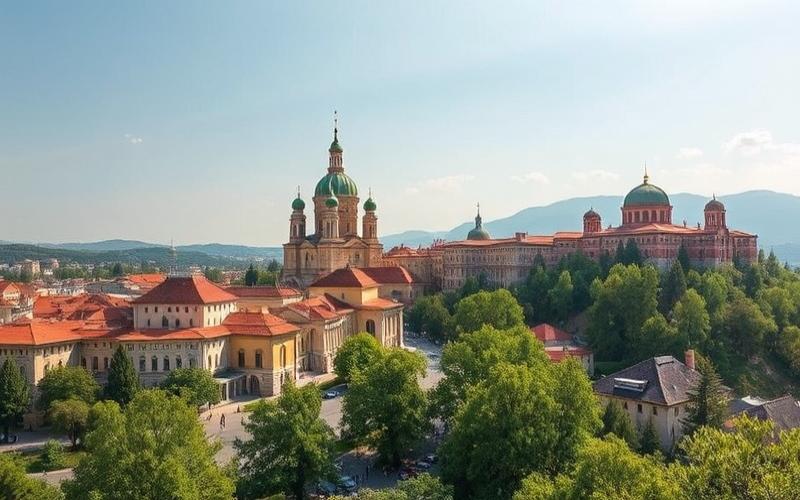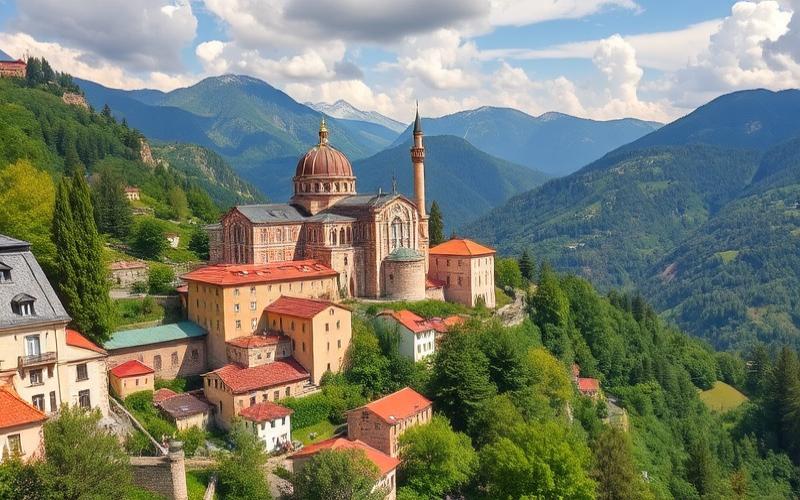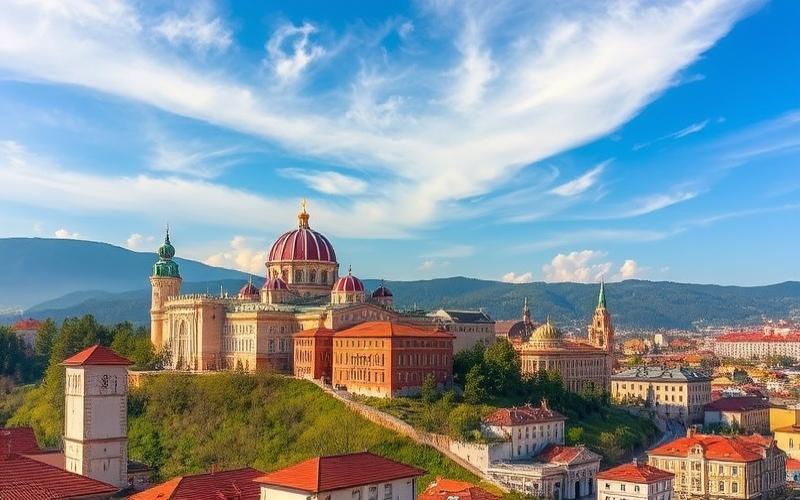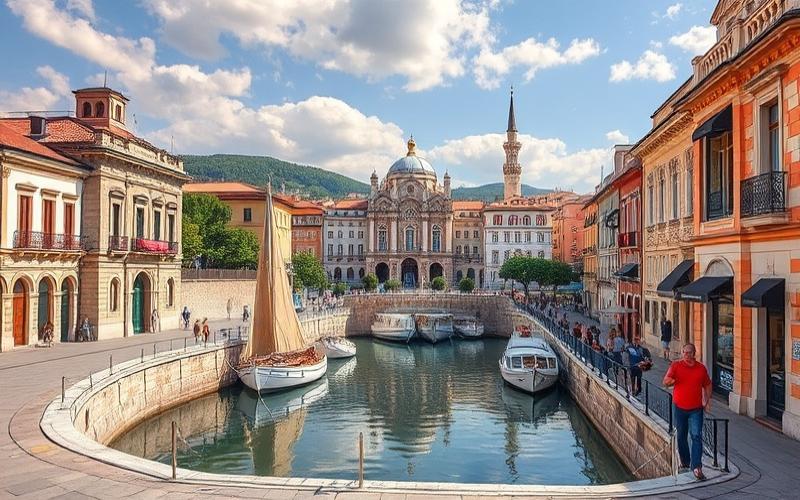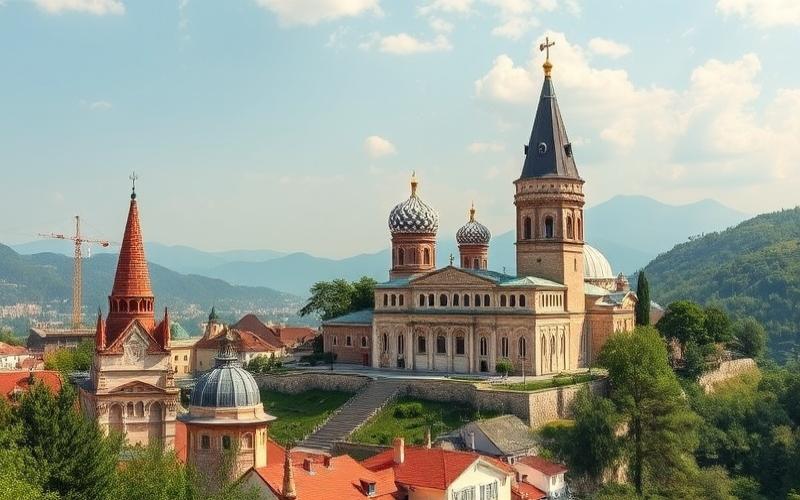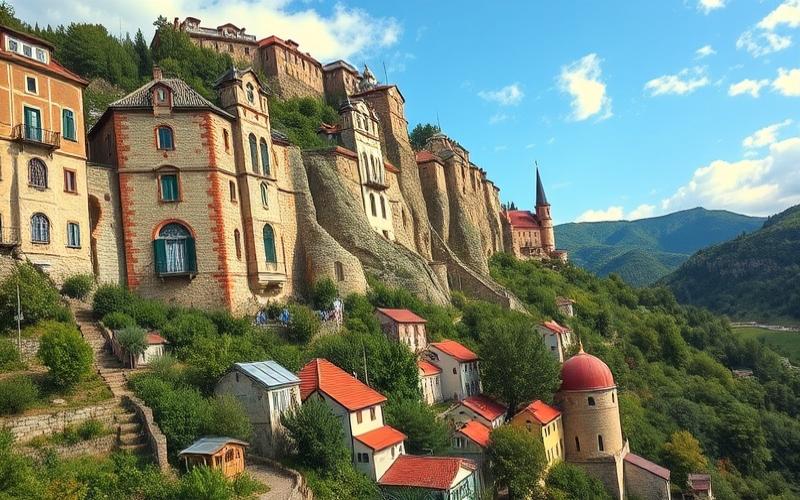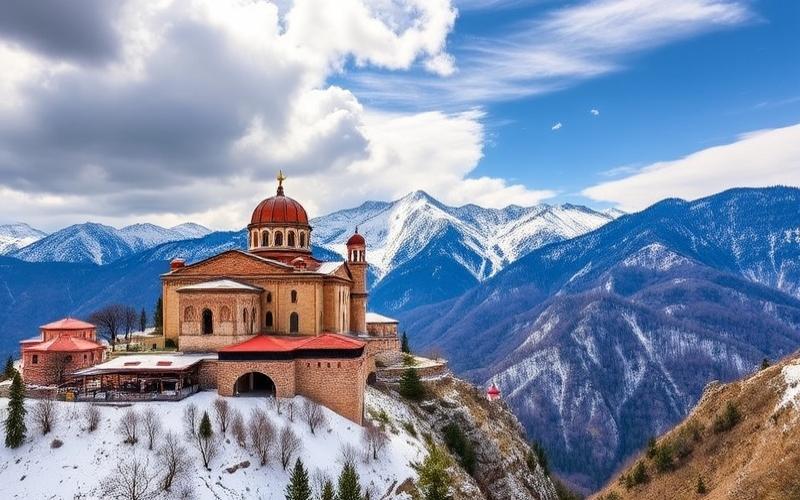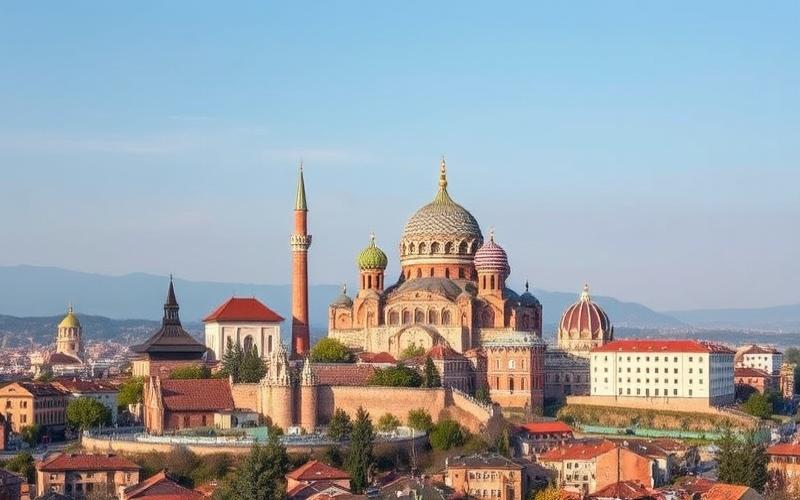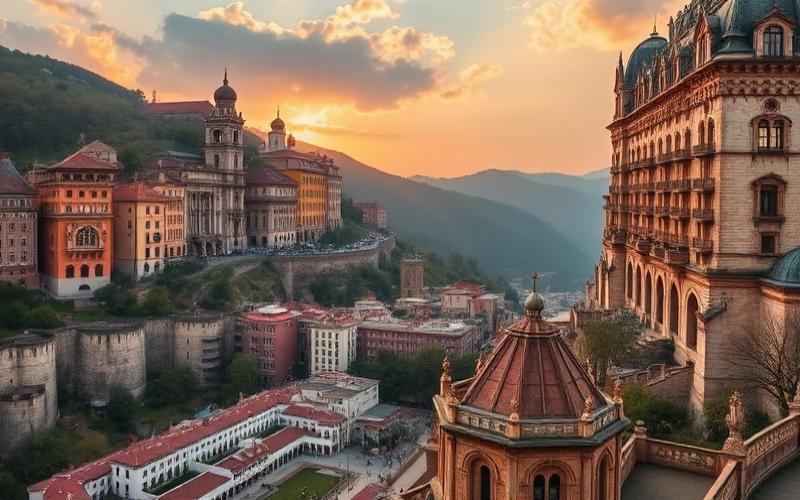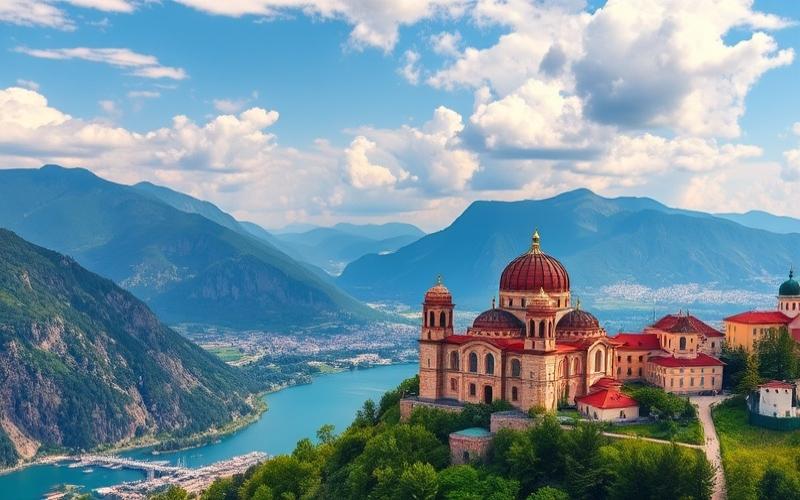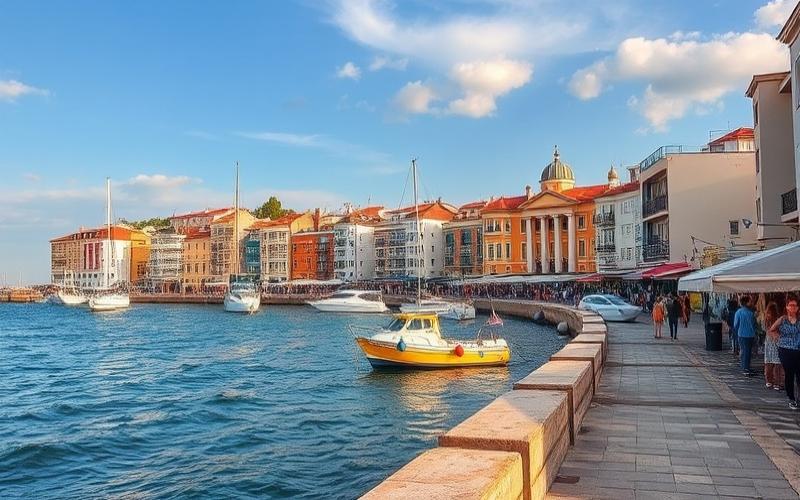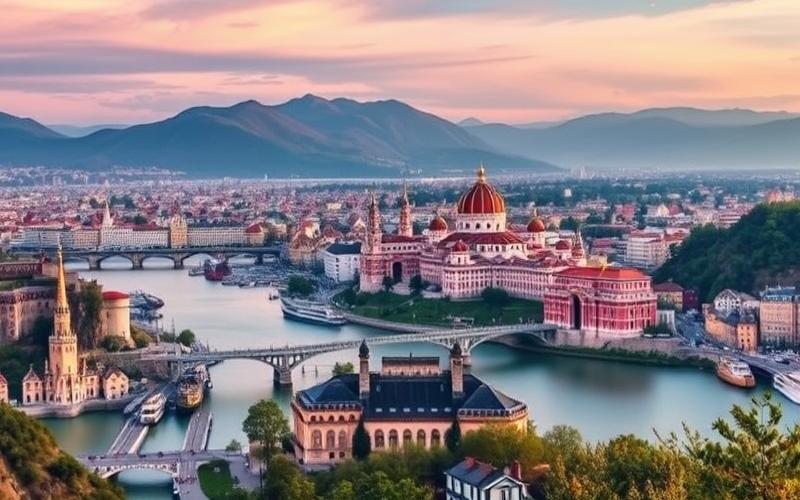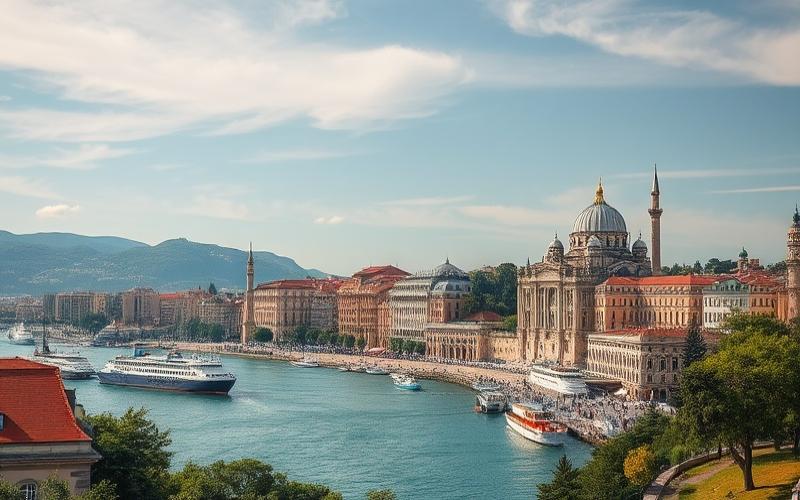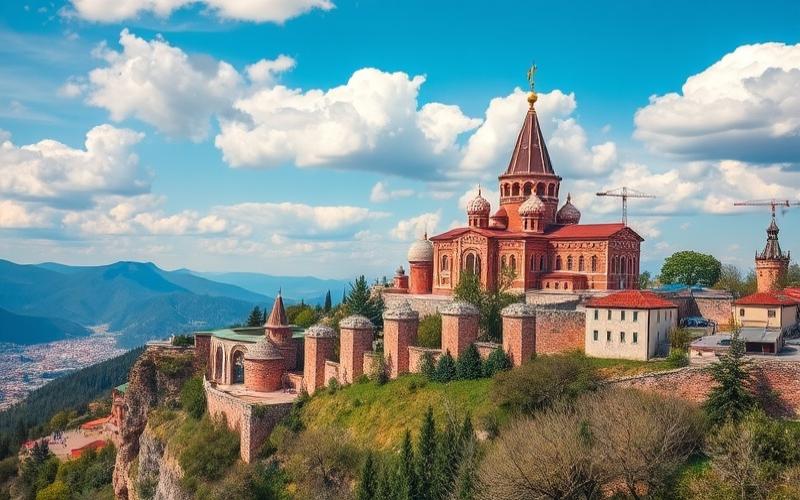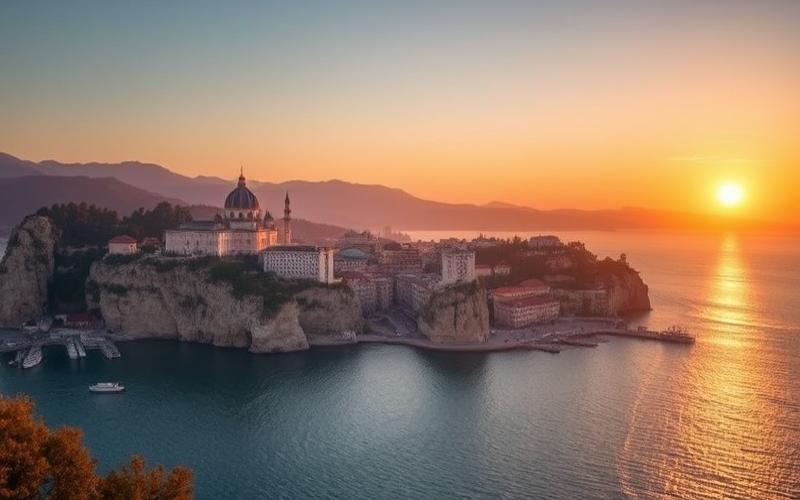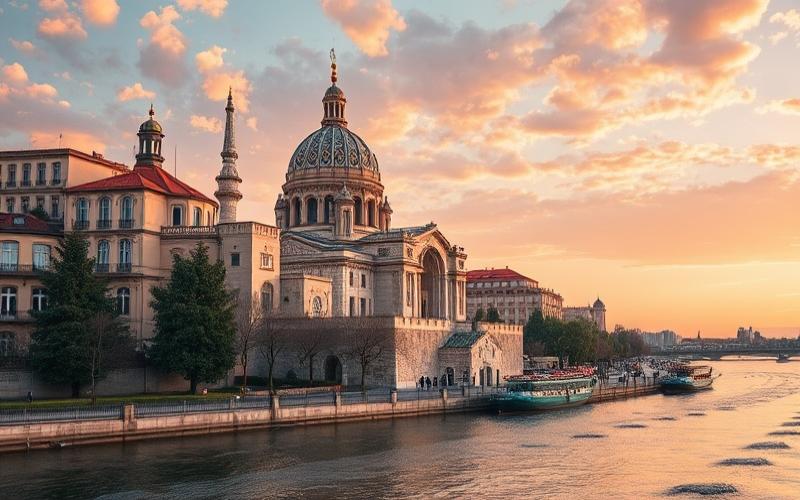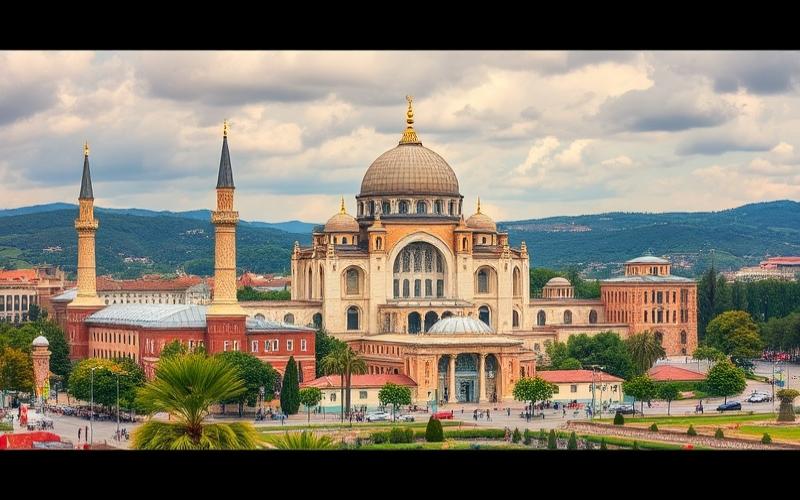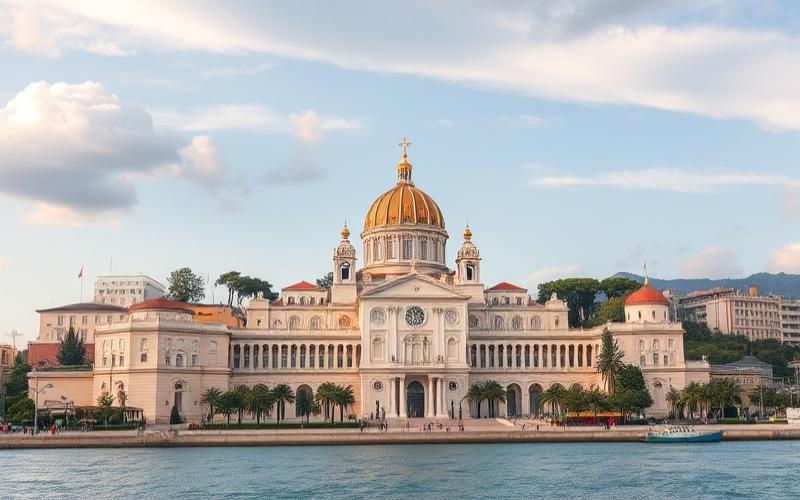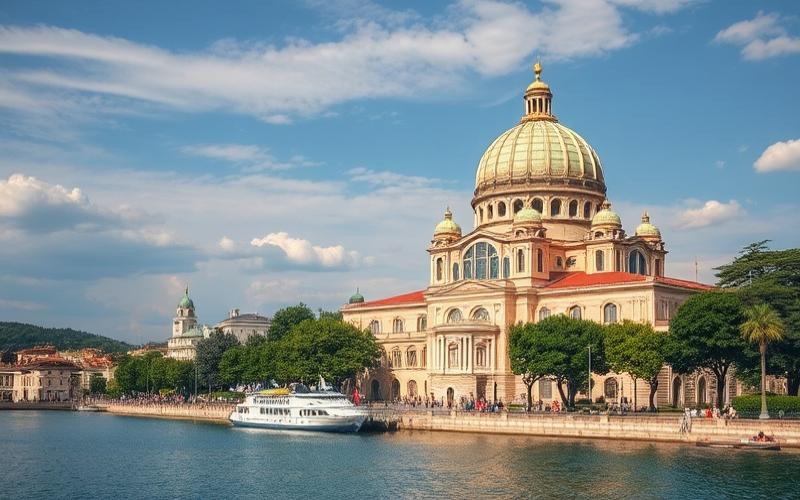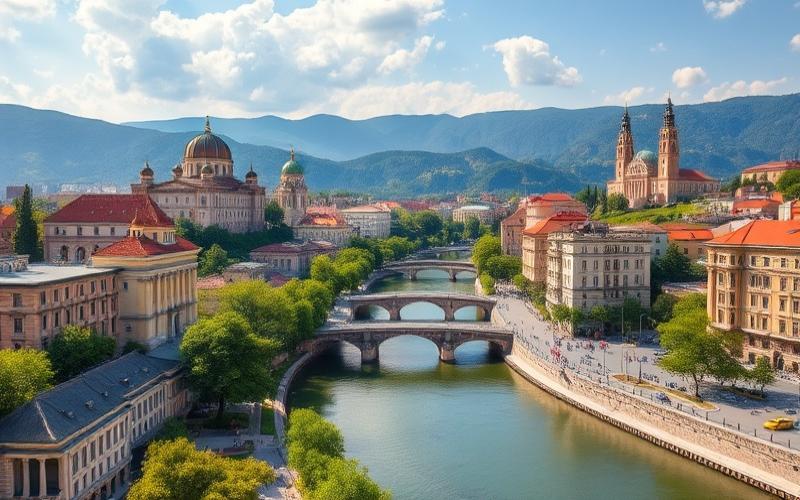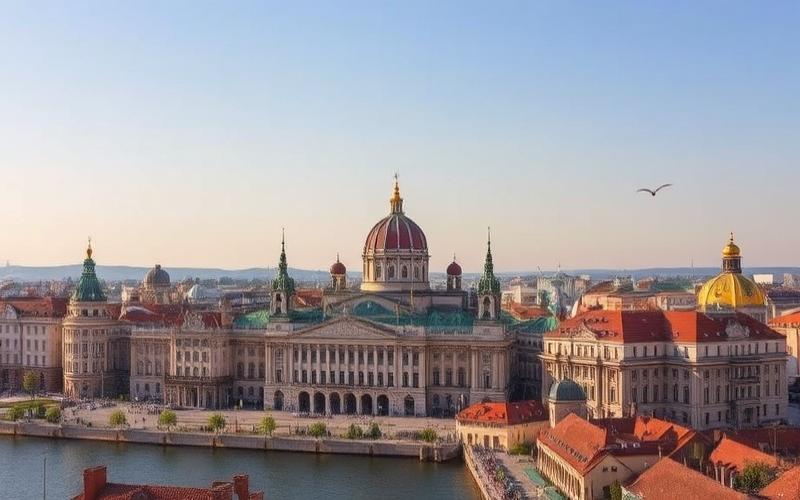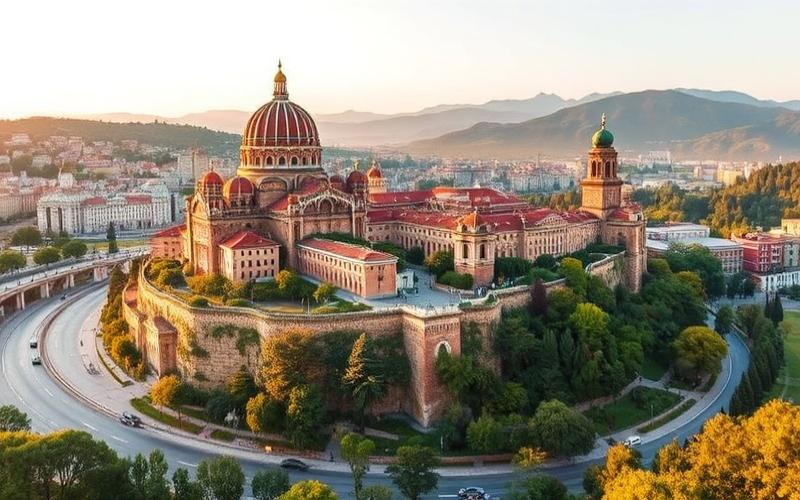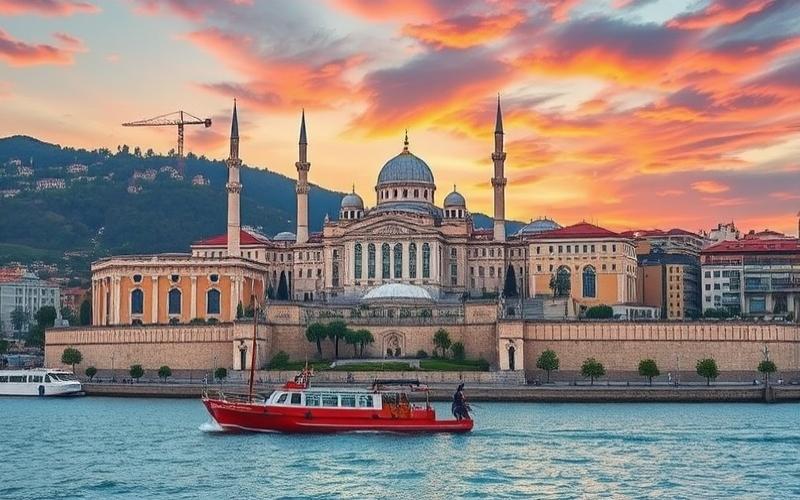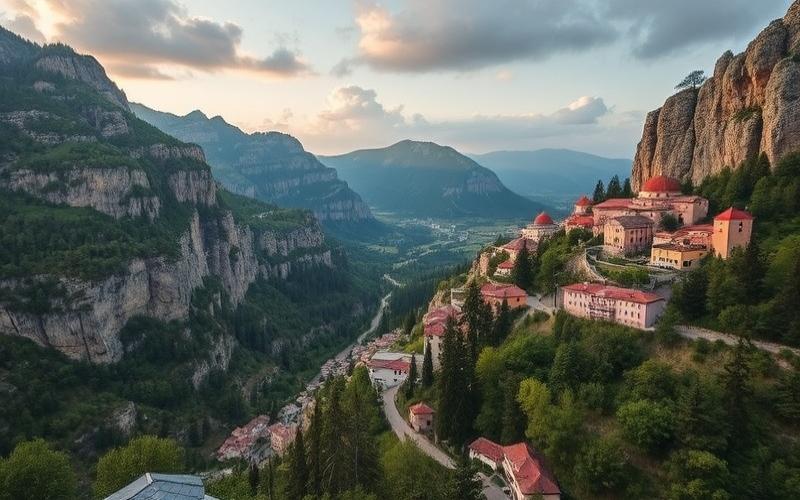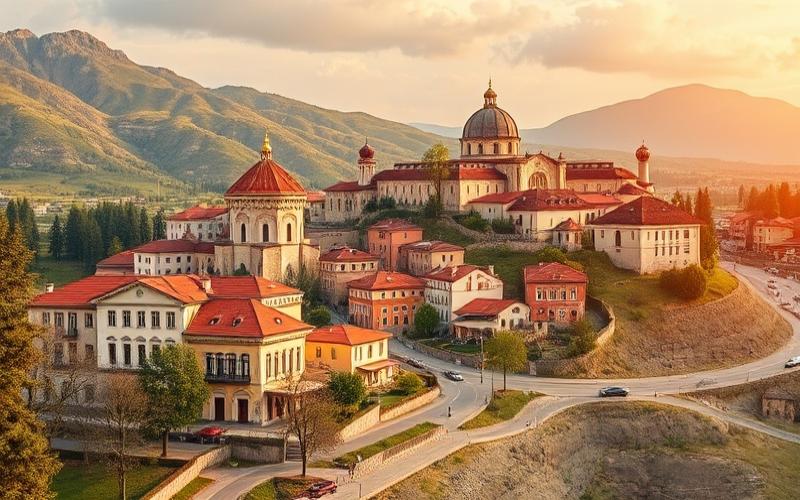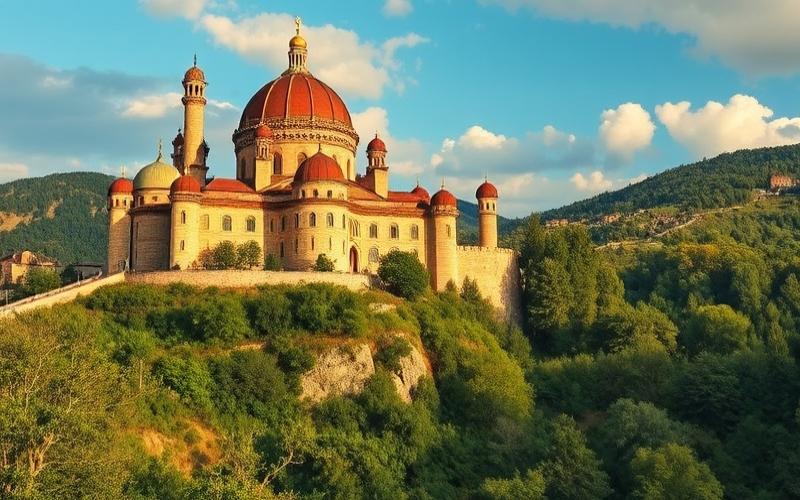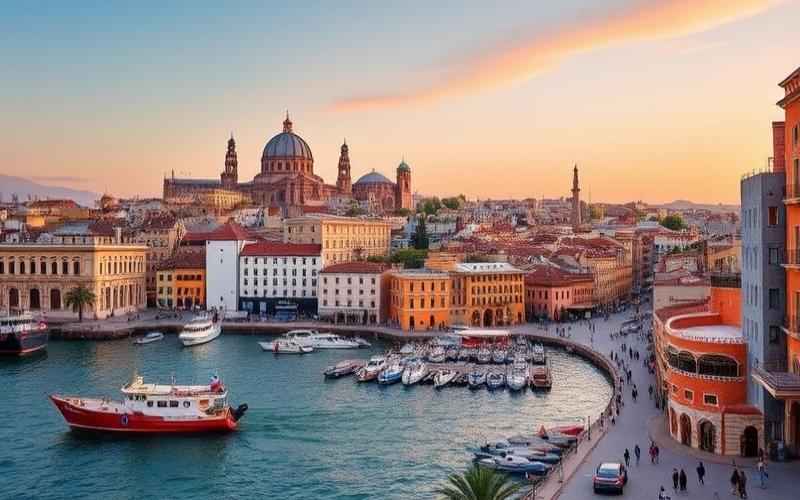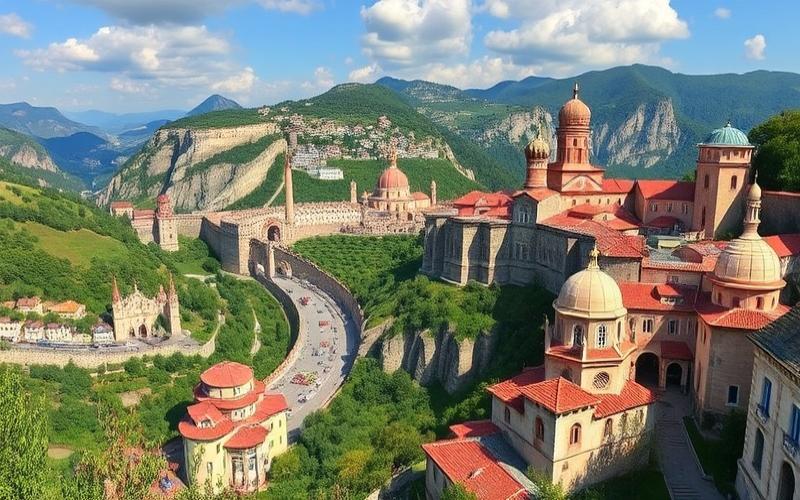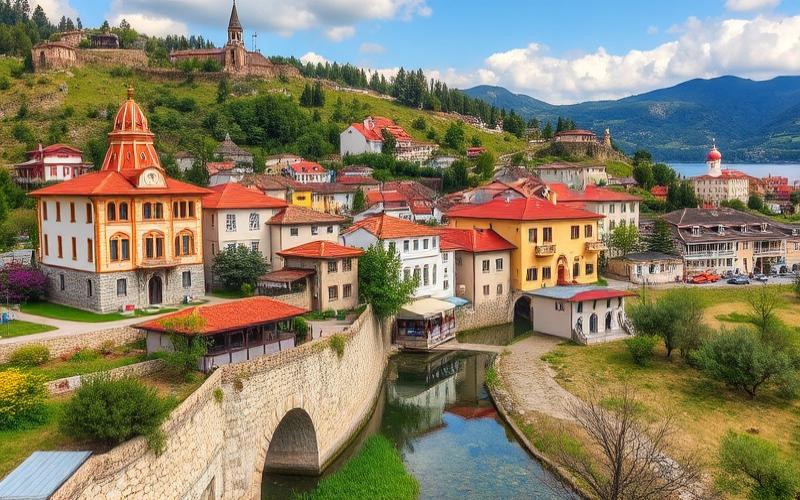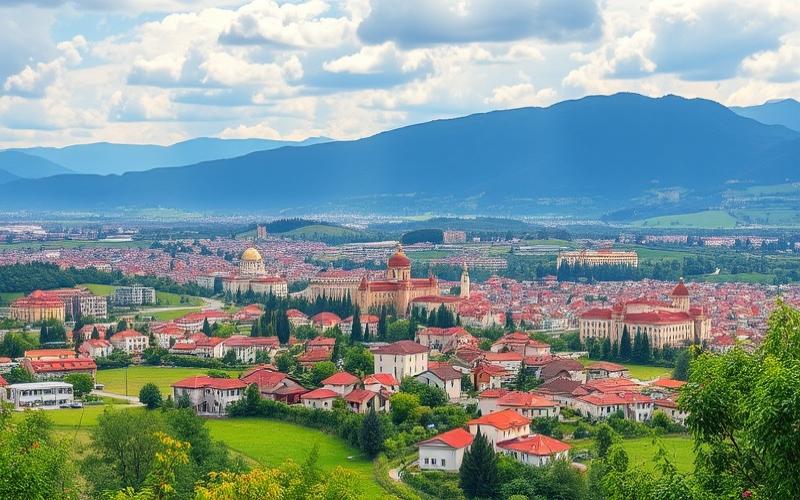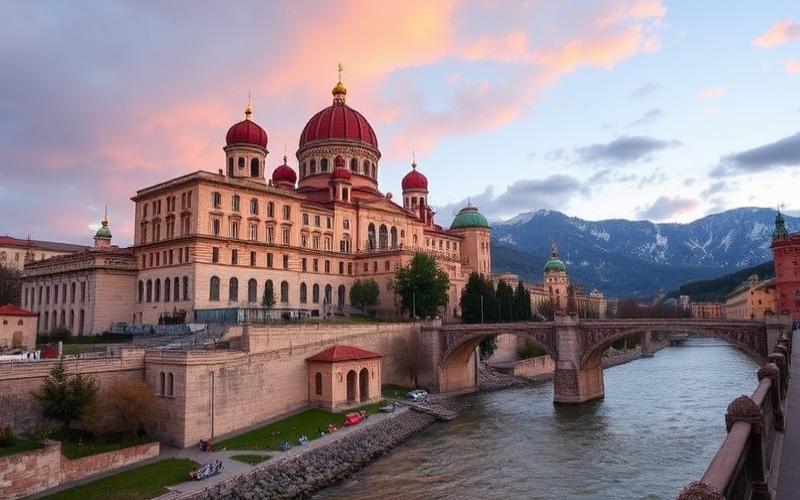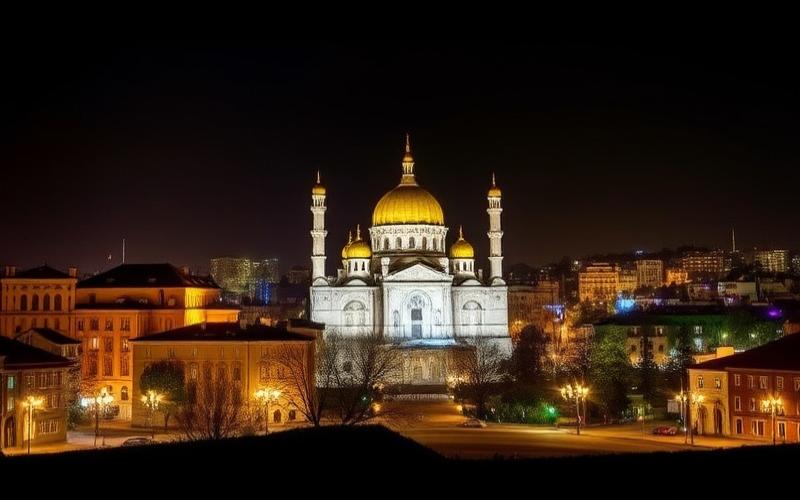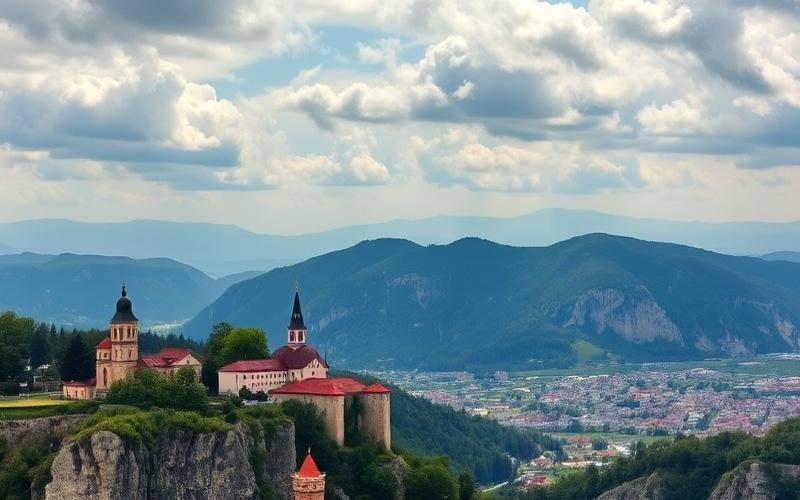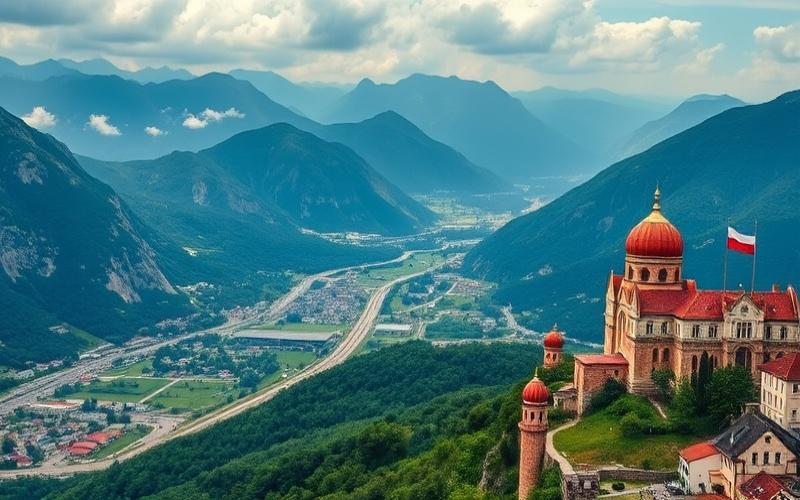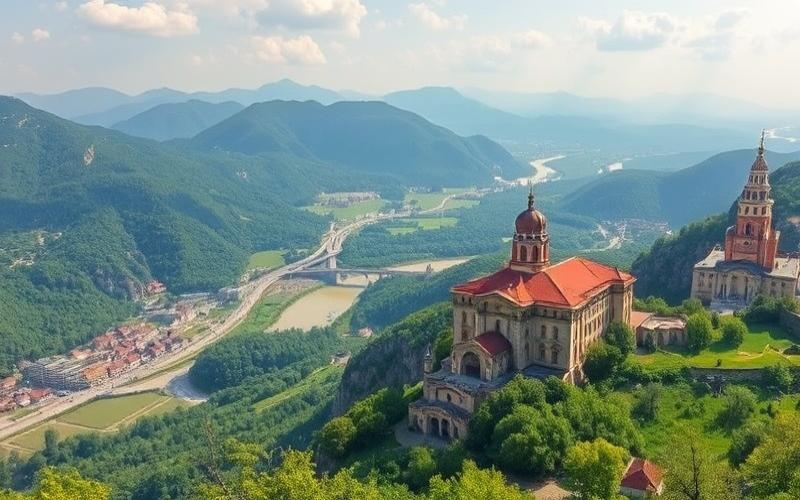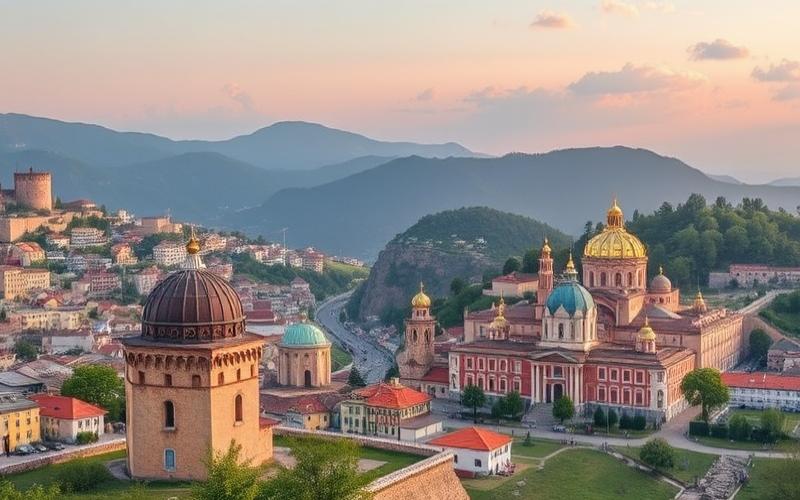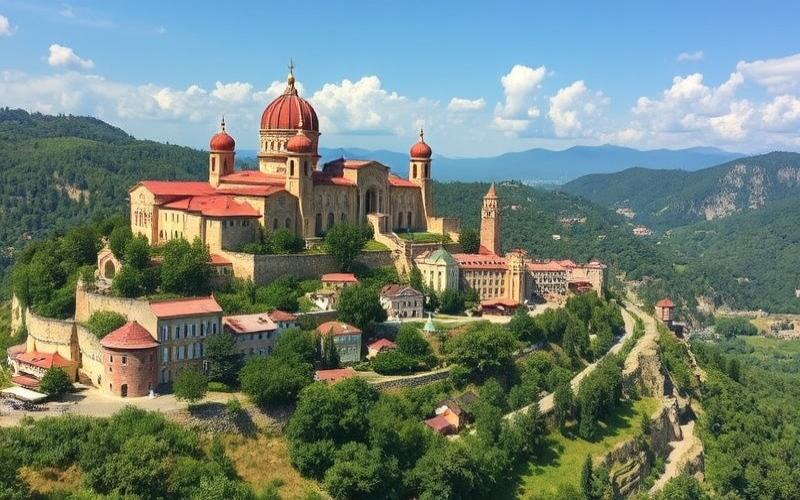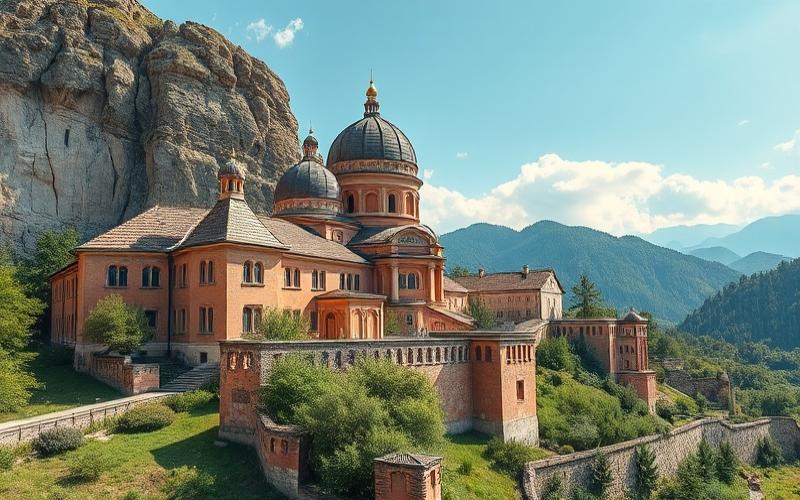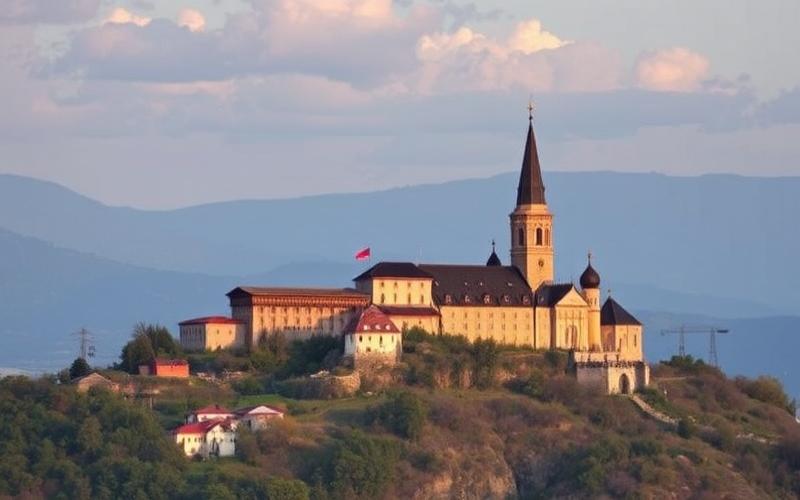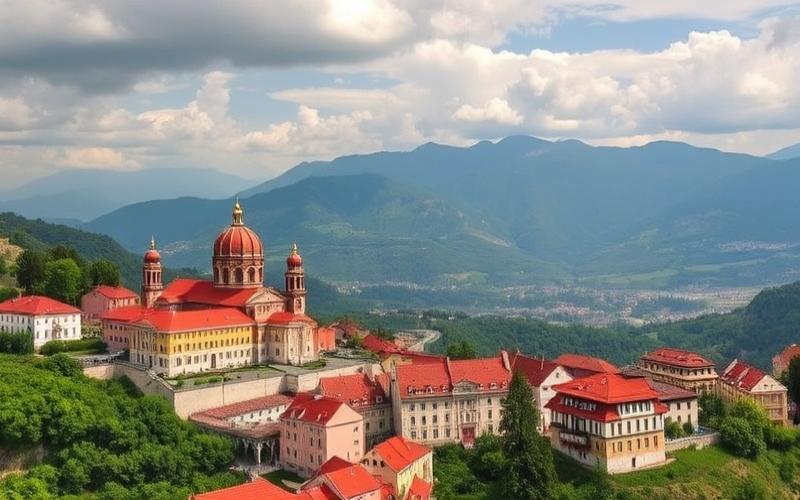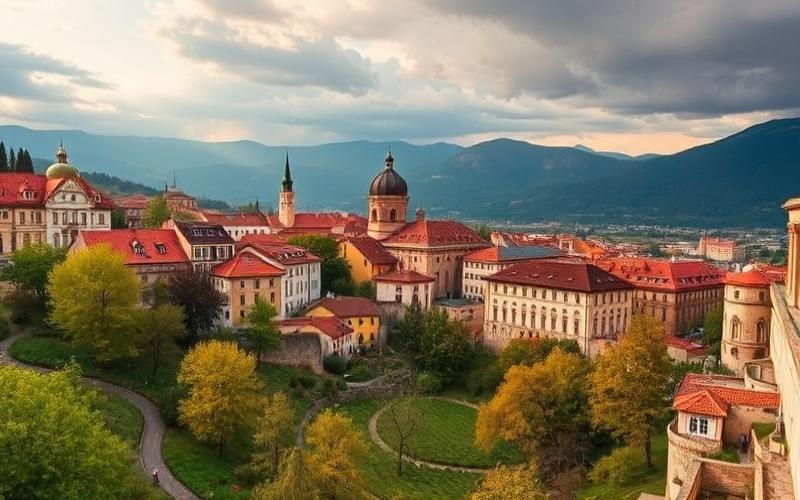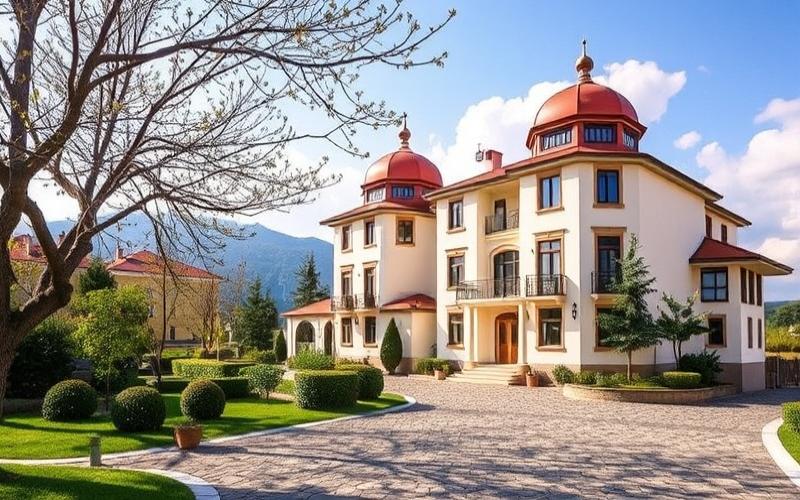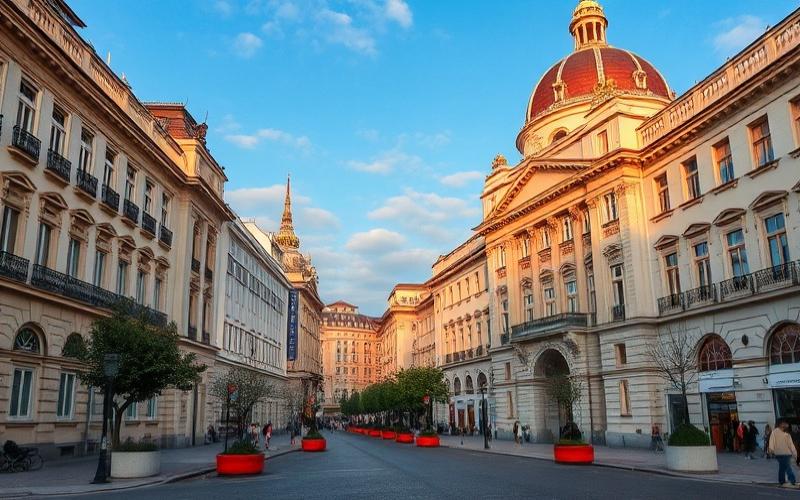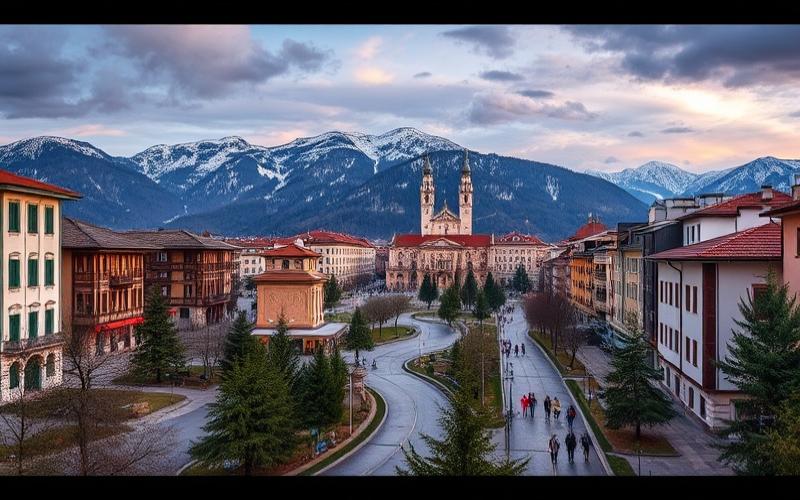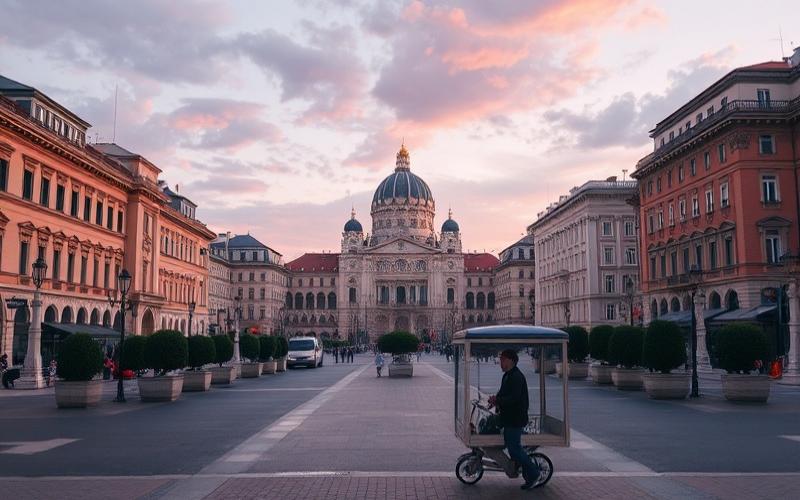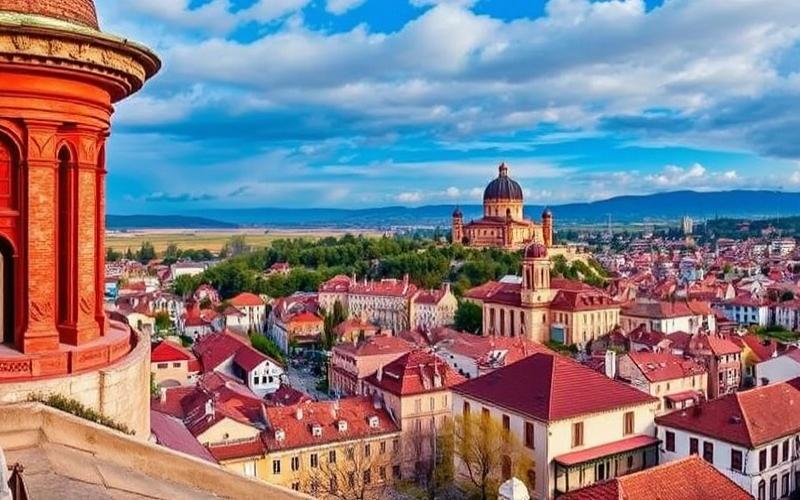
 Published on and written by Cyril Jarnias
Published on and written by Cyril Jarnias
Bulgaria, often recognized for its picturesque landscapes and rich cultural heritage, is on its way to becoming a true hub of economic opportunities. With a rapidly developing economy, some of its cities are seeing the emergence of extraordinary real estate potential, promising significant price increases by 2030. Real estate, as an investment catalyst, is attracting more and more entrepreneurs and expatriates seeking dynamic Bulgarian cities where it’s still possible to make golden deals. Let’s explore these promising cities where the future looks bright and where market trends could surprise more than one investor.
Promising Cities in Bulgaria for Real Estate
Bulgarian Cities with High Real Estate Potential
Bulgaria is experiencing dynamic real estate growth, particularly in its major cities. Sofia, Varna, and Plovdiv stand out as major attraction hubs for local and foreign investors.
Sofia: The Expanding Economic Heart
The Bulgarian capital Sofia stands as the country’s economic engine. With its 1.5 million inhabitants, it concentrates nearly 40% of the national GDP. Its diversified economy attracts numerous international companies, stimulating real estate demand.
Sofia’s real estate market experienced an impressive price increase of 90.48% between 2015 and 2023. This trend is expected to continue, with forecasts indicating an average annual growth of 3 to 5% until 2030.
Urban development projects are flourishing, particularly in the Oborishte and Lozenets neighborhoods. These areas are seeing the emergence of high-end residential complexes, meeting a growing demand for quality housing.
Varna: The Pearl of the Black Sea
Varna, the country’s third-largest city, benefits from its strategic position on the Black Sea. Its dynamic port and flourishing tourism industry make it a major economic hub.
Varna’s real estate market has experienced sustained growth, with average prices reaching €1,550 per square meter in 2023, representing a 10% increase over one year. Experts predict this upward trend will continue, driven by infrastructure improvement projects and the city’s growing appeal to foreign investors.
The Sunny Beach region, near Varna, offers interesting opportunities for leisure real estate investment, with prices starting at €900 per square meter.
Plovdiv: A Thriving Industrial Hub
As Bulgaria’s second city, Plovdiv has established itself as a major industrial and cultural center. Its status as European Capital of Culture in 2019 enhanced its attractiveness and stimulated the local real estate market.
Real estate prices in Plovdiv saw a 17% increase in 2023, reaching an average of €1,200 to €1,400 per square meter. The city is attracting more and more foreign investors, drawn by its economic dynamism and quality of life.
The development of new industrial and technological zones is expected to support Plovdiv’s real estate market growth in the coming years, with optimistic forecasts for 2030.
Factors Driving Real Estate Growth
Several factors contribute to these cities’ attractiveness for real estate investment:
- Favorable taxation, with a corporate tax rate of only 10%
- Competitive labor costs attracting foreign companies
- Continuous improvement of urban and transport infrastructure
- Favorable migration policy for foreign investors
- Development of the technology and innovation sector
Price Evolution Outlook Until 2030
Analysts predict continued growth in the Bulgarian real estate market until 2030, driven by several factors:
- Upcoming accession to the Eurozone, which should stimulate the economy and attract more investors
- Continuation of urban development projects and infrastructure improvements
- Increase in the local population’s purchasing power
- Growing interest from foreign investors in the Bulgarian market
Although the growth rate may moderate compared to previous years, experts anticipate an average annual price increase of 3 to 5% in major Bulgarian cities by 2030.
Cultural and Educational Attractiveness
Beyond economic factors, the cultural and educational appeal of these cities contributes to stimulating real estate demand:
- Sofia and Plovdiv are home to renowned universities, attracting local and international students
- The rich historical heritage of these cities appeals to tourists and expatriates
- The development of creative neighborhoods and cultural hubs enhances their attractiveness
- Improved quality of life and leisure infrastructure attracts a young and dynamic population
These elements contribute to creating an environment conducive to long-term real estate investment in major Bulgarian cities.
Good to Know:
Sofia, Varna, and Plovdiv are Bulgarian cities where real estate is booming thanks to various economic and demographic factors. Sofia, as the capital, benefits from ambitious urban development projects and constant infrastructure improvements, thus attracting many foreign investors. Varna, on the other hand, leverages its assets as a popular seaside resort, which stimulates real estate demand, particularly in the tourism sector. As for Plovdiv, it attracts a young and educated population thanks to the university and numerous cultural events. Forecasts indicate a continued increase in real estate prices by 2030, supported by stable economic growth and international investments. The positive economic outlook, coupled with a rich educational and cultural offering, fosters increased interest in these cities, indicating growing real estate demand over the next decade.
Long-Term Investment: The Best Growth Areas
Economic Trends and High-Potential Cities in Bulgaria
The Bulgarian economy shows encouraging signs of recovery and growth, with positive projections for the coming years. After slowing to 1.8% in 2023, GDP growth is expected to accelerate to between 2.5% and 3.2% in 2024, according to various estimates. This economic recovery should continue until 2030, offering interesting investment opportunities in certain key cities across the country.
Sofia: The Capital in Transformation
Sofia, the Bulgarian capital, positions itself as the main driver of the country’s economic growth. The city benefits from an ambitious urban development plan called “Sofia 2030,” which aims to modernize its infrastructure and attract foreign investment. This project, valued at over €8 billion, plans to create a new dynamic city center, extend the metro network, and implement energy efficiency initiatives.
The information and communication technology (ICT) sector is experiencing rapid growth in Sofia, attracting numerous international companies and stimulating real estate demand in certain neighborhoods. The city is also seeing increased investment in modern office spaces and luxury residential areas, foreshadowing a rise in real estate prices in the coming years.
Plovdiv: The Renaissance of a Historic City
As Bulgaria’s second city, Plovdiv is experiencing significant economic renewal. A former European Capital of Culture in 2019, the city continues its transformation with several ambitious urban development projects. The revitalization of its historic center, combined with the creation of a modern business district, the “Plovdiv Business Park,” should stimulate the city’s attractiveness for investors and international companies.
The manufacturing sector, particularly the automotive and electronics industries, is experiencing sustained growth in Plovdiv, attracting significant foreign investment. This economic dynamism, combined with improved transport infrastructure, particularly the modernization of the international airport, foreshadows an increase in real estate demand and a potential price rise in the coming years.
Varna: The Potential of the Black Sea Coast
Varna, Bulgaria’s third-largest city and main port on the Black Sea, presents significant economic growth potential. The city benefits from major investments in the tourism sector, with the modernization of its accommodation infrastructure and the development of new attractions. Varna’s port also plays a crucial role in the local economy, with expansion and modernization projects underway.
The renewable energy sector, particularly offshore wind, is experiencing significant growth in the Varna region, attracting foreign investment and creating new employment opportunities. This economic diversification, combined with the city’s growing tourist appeal, could lead to increased real estate demand and price increases in the coming years.
Factors Contributing to Economic Growth and Price Increases
Several economic, demographic, and political factors contribute to the prediction of price increases in these regions:
- Bulgaria’s planned accession to the Eurozone by 2026, which should strengthen economic stability and attract more foreign investment.
- The implementation of the National Recovery and Resilience Plan (NRRP), which plans significant investments in energy transition, digitalization, and ecology.
- Continuous improvement of the business climate and the fight against corruption, which enhances the country’s attractiveness for international investors.
- The trend towards decentralization of collective bargaining, which could stimulate wage growth in certain sectors and regions.
However, it should be noted that Bulgaria faces significant demographic challenges, with a declining and rapidly aging population. This trend could impact long-term real estate demand, particularly in rural areas and small towns.
Economic Projections and Investment Opportunities
Economic projections for Bulgaria are generally positive, with GDP growth expected between 2.5% and 3% per year until 2030. Inflation should stabilize around 3% in 2025, which could contribute to real appreciation of real estate assets.
Foreign direct investment (FDI) flows are expected to remain at a high level, around 3.8-3.9% of GDP in 2024 and 2025, offering interesting opportunities for international investors.
The most promising sectors for long-term investments include information technology, high-tech manufacturing, renewable energy, and sustainable tourism. The cities of Sofia, Plovdiv, and Varna seem particularly well-positioned to benefit from these trends, with prospects for significant economic growth and real estate appreciation by 2030.
Good to Know:
Sofia, Plovdiv, and Varna are identified as the best growth areas for long-term investment in Bulgaria by 2030. Sofia, the dynamic capital, benefits from infrastructure expansion and attracts many technology companies, thanks in particular to favorable tax incentives. Plovdiv, recognized for its booming manufacturing sector, also relies on ambitious urban development projects, such as the modernization of public transport to improve connectivity. Varna, the pearl of the Black Sea, is enriched by significant tourism growth and investments in the maritime sector. Demographically, these cities are experiencing continuous growth in their working population, increasing the demand for housing and services. Economic forecasts indicate a 30% to 50% increase in real estate prices by the next decade, supported by political stability and a favorable investment climate. This context makes these cities strategic choices for investors looking to leverage the expected economic growth in the region.
Why Prices Are Soaring in These Cities
Why Prices Are Soaring in These Cities
The explosion of real estate prices in major Bulgarian cities is the result of a combination of economic, social, and political factors that have transformed the country’s urban landscape.
Sofia, the capital, is at the heart of this dynamic. With a price growth of 16% over one year, the city is attracting more and more foreign investors and young professionals. This increase is explained in particular by:
- A growing economy, with GDP up 2.8% in 2024
- Historically low interest rates, around 2.5% for mortgages
- Growing demand for quality housing in the city center
- Major infrastructure projects, such as metro extension
Plovdiv, the country’s second city, is also experiencing strong price increases, although more moderate with a 6.2% increase over one year. This growth is fueled by:
- Its status as European Capital of Culture in 2019, which boosted its attractiveness
- The development of its technology park, attracting numerous international companies
- A young and dynamic population, creating strong rental demand
Varna, on the Black Sea coast, sees its prices climbing by 15.9% in one year. This spectacular rise is explained by:
- Its growing tourist appeal, with over 5 million visitors per year
- Massive investments in port and airport infrastructure
- Growing demand for second homes from foreign buyers
The Impact of Urbanization and Influx of Expatriates
Rapid urbanization in Bulgaria plays a crucial role in this price increase. Approximately 75% of the Bulgarian population now lives in urban areas, creating unprecedented real estate pressure in major cities.
Moreover, the influx of expatriates, attracted by professional opportunities and an advantageous cost of living, contributes to this trend. Sofia alone hosts over 20,000 expatriates, mainly professionals from the technology and financial services sectors.
Appeal to Foreign Investors
Foreign investors are increasingly interested in the Bulgarian real estate market, attracted by:
- Prices still competitive compared to other European capitals
- Advantageous tax regime, with a corporate tax rate of only 10%
- Attractive rental yields, reaching 6% in some areas of Sofia
- The prospect of euro adoption in the medium term, which could boost asset value
Infrastructure Improvement as a Catalyst
Massive investments in infrastructure largely contribute to the attractiveness of Bulgarian cities:
- In Sofia, the extension of the metro network has significantly improved urban mobility
- In Plovdiv, the modernization of the central station has enhanced the city’s connectivity
- In Varna, the expansion of the international airport has boosted tourism and investments
Outlook Until 2030
Analysts predict a continuation of real estate price increases in major Bulgarian cities until 2030, with:
- Average annual growth of 5 to 8% in Sofia
- A more moderate increase of 3 to 5% in Plovdiv and Varna
- Growing interest in secondary cities like Burgas and Ruse
This trend could be reinforced by Bulgaria’s planned accession to the Eurozone, which should further stimulate foreign investment and confidence in the local real estate market.
Good to Know:
Bulgarian cities like Sofia, Plovdiv, and Varna are experiencing a price explosion due to several interconnected economic, social, and political factors. Rapid urbanization and the increase in expatriate population create heightened demand for housing, increasing pressure on the real estate market. The growing appeal to foreign investors, attracted by high potential returns, further stimulates this price increase. Infrastructure improvements, such as transport projects in Sofia or urban development plans in Varna, are transforming these cities into increasingly attractive economic hubs. Local policies favoring investments, combined with the government’s commitment to modernize infrastructure, also contribute to this dynamic. According to forecasts, this trend should continue until 2030, suggesting investment opportunities but also challenges for housing affordability.
Successful Investment Strategies in Bulgaria
Current Trends in the Bulgarian Real Estate Market
The Bulgarian real estate market is currently experiencing sustained growth, particularly in major cities like Sofia, Plovdiv, and Varna. In Sofia, prices increased by 8.8% year-over-year, reaching an average of over €3,500 per m² in the city center (more in the hyper center). The new construction market is particularly dynamic, with prices often exceeding €2,000 per m² for quality apartments outside the city center.
In Plovdiv, the country’s second city, price increases reached 17% over one year, with average prices ranging between €1,200 and €1,400 per m². Varna, the main coastal city, sees its prices climbing to an average of €1,350 per m², with new waterfront developments reaching over €2,000 per m².
Growth Sectors and Infrastructure Projects
Several key sectors are stimulating Bulgarian economic growth and, consequently, the real estate market:
– The information technology sector, particularly dynamic in Sofia, attracts many investors and talent, creating increased demand for modern housing and office spaces.
– Tourism, booming on the Black Sea coast and in ski resorts, generates investment opportunities in seasonal rental properties.
– The manufacturing sector, particularly in the Plovdiv and Rousse regions, stimulates demand for industrial and logistics real estate.
Major infrastructure projects are also underway, such as the modernization of the railway network and the extension of Sofia’s metro, which should have a positive impact on real estate values in the affected areas.
Winning Investment Strategies
Early acquisition of properties in developing neighborhoods has proven particularly lucrative. For example, investors who purchased properties in Sofia’s Mladost neighborhood five years ago have seen their property values increase by over 40%.
Investment in commercial real estate in Plovdiv and Varna has also generated attractive returns. Offices purchased three years ago in Plovdiv’s business center have seen their rental value increase by 25%, offering net yields above 6% per year.
Impact of Economic and Policy Changes
Bulgaria’s planned entry into the Eurozone by 2026 should further stimulate the real estate market by attracting more foreign investors and stabilizing the economy. However, political uncertainties persist and could affect investor confidence in the short term.
Tips to Minimize Risks
To minimize risks associated with real estate investment in Bulgaria:
– Diversify your portfolio across different cities and property types – Work with reputable local professionals for due diligence – Stay informed about regulatory developments, particularly regarding real estate taxation – Consider investments in areas benefiting from major infrastructure projects
Future Outlook
Local experts predict a continuation of real estate price increases, although at a more moderate pace. According to real estate analyst Ivan Petrov, “the Bulgarian market still offers significant growth potential compared to other European countries, particularly thanks to continuous infrastructure improvements and the country’s growing appeal to foreign investors.”
With net rental yields that can reach 7% in some urban areas and significant potential capital gains, the Bulgarian real estate market remains an attractive option for savvy investors capable of navigating an ever-changing environment.
Good to Know:
To succeed in real estate investment in Bulgaria, it is crucial to focus on cities with high growth potential like Sofia and Varna, where prices have increased by 15% over the past two years according to the National Statistical Institute. Investing in developing neighborhoods or commercial properties, particularly in Plovdiv, which benefits from EU-supported infrastructure projects, can generate significant returns. Proven strategies include early purchase in transitioning areas and diversifying investments between residential and commercial. Local experts, such as those from the Bulgaria Real Estate agency, advise monitoring political and economic reforms likely to affect the market, while recommending the use of insurance to mitigate risks related to economic fluctuations and legislative changes.
Disclaimer: The information provided on this website is for informational purposes only and does not constitute financial, legal, or professional advice. We encourage you to consult qualified experts before making any investment, real estate, or expatriation decisions. Although we strive to maintain up-to-date and accurate information, we do not guarantee the completeness, accuracy, or timeliness of the proposed content. As investment and expatriation involve risks, we disclaim any liability for potential losses or damages arising from the use of this site. Your use of this site confirms your acceptance of these terms and your understanding of the associated risks.

